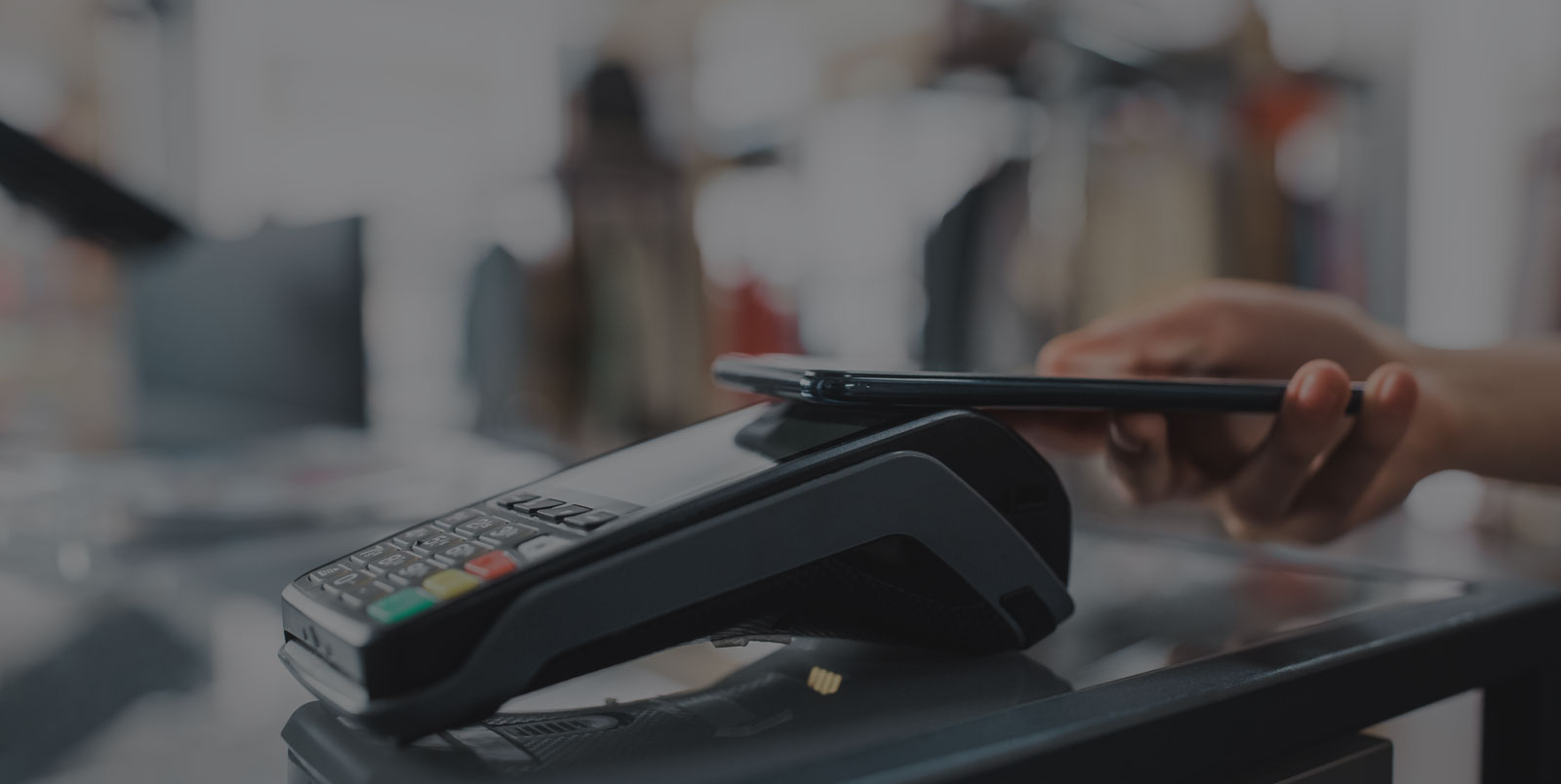
By Cindy Gardea October 13, 2024
In the ever-evolving landscape of payments and financial technology, cryptocurrencies have emerged as a transformative force. Many businesses, including those in high-risk industries like credit repair, are beginning to accept cryptocurrency payments to expand their customer base, tap into the growing crypto community, and offer more diverse payment options.
As cryptocurrencies like Bitcoin (BTC), Ethereum (ETH), and stablecoins such as USD Coin (USDC) become more widely accepted, credit repair businesses can benefit by embracing this innovative payment method.
In this comprehensive guide, we will explore how credit repair businesses can accept cryptocurrency payments, the benefits of doing so, the potential challenges, and the steps to implement crypto payments in your business. We will also address the regulatory aspects, security measures, and the future outlook of cryptocurrency in the credit repair industry.
What Are Cryptocurrency Payments?

Cryptocurrency payments involve the transfer of digital currencies from one party to another. Unlike traditional fiat currencies, such as the U.S. dollar or the Euro, cryptocurrencies operate on decentralized blockchain networks, meaning they are not controlled by any central bank or government. Payments made using cryptocurrencies are peer-to-peer, secured by cryptography, and recorded on a distributed ledger known as the blockchain.
The most commonly used cryptocurrencies for payments include:
- Bitcoin (BTC): The first and most well-known cryptocurrency.
- Ethereum (ETH): A decentralized platform that allows for smart contracts and decentralized applications (DApps).
- Stablecoins (USDC, USDT): Cryptocurrencies pegged to the value of traditional currencies like the U.S. dollar, providing price stability.
For credit repair businesses, accepting crypto payments offers a new way to engage clients and secure transactions in a fast, secure, and efficient manner.
Why Should Credit Repair Businesses Accept Crypto Payments?
Credit repair businesses operate in a highly regulated and competitive environment. By offering cryptocurrency payments, credit repair companies can differentiate themselves, attract tech-savvy customers, and benefit from lower transaction fees compared to traditional payment methods. Here are some key reasons why your credit repair business should consider accepting crypto payments:
1. Expand Your Customer Base
Cryptocurrency payments are growing in popularity across the globe, with millions of people holding and using digital currencies. By accepting crypto, you open your business to a global market of crypto enthusiasts who prefer using digital currencies over traditional methods. This can help you attract new clients, especially those who are more privacy-conscious and prefer decentralized payment systems.
2. Faster Transactions and Reduced Fees
Traditional payment methods, especially credit cards, often come with high transaction fees and processing delays. In contrast, crypto payments can be processed much faster—often within minutes—and typically come with lower fees. This is especially beneficial for credit repair businesses, where quick and cost-effective transactions are crucial for maintaining cash flow.
3. Increased Security and Reduced Fraud
Cryptocurrency transactions are secured by blockchain technology, making them highly secure and nearly impossible to reverse once confirmed. This reduces the risk of chargebacks and fraud, which is a common issue in the credit repair industry. Since crypto payments are final and cannot be reversed, businesses can have peace of mind knowing they won’t face unexpected chargeback fees.
4. International Payments Made Easy
If your credit repair business serves international clients, cryptocurrency can simplify cross-border payments. With crypto, you can avoid the complexities of currency conversion and high international transaction fees. Cryptocurrencies are borderless, allowing you to accept payments from clients worldwide with minimal friction.
5. Future-Proof Your Business
The use of digital currencies is expected to grow in the coming years. By adopting cryptocurrency payments early, your credit repair business can position itself as an innovative and forward-thinking company that is ready for the future of finance. This can help you stand out in the competitive credit repair industry.
How to Accept Cryptocurrency Payments for Your Credit Repair Business
Now that we’ve covered why accepting crypto payments is beneficial, let’s explore how to implement cryptocurrency payments for your credit repair business. Here’s a step-by-step guide to getting started:
1. Choose the Right Cryptocurrencies to Accept
Before implementing crypto payments, decide which cryptocurrencies you want to accept. Bitcoin and Ethereum are the most popular, but stablecoins like USD Coin (USDC) are increasingly favored by businesses because they offer the benefits of cryptocurrency without the volatility associated with other digital assets.
Start by accepting a few well-known cryptocurrencies, such as:
- Bitcoin (BTC): Widely accepted and recognized as the standard in cryptocurrency.
- Ethereum (ETH): Known for its decentralized applications and smart contract functionality.
- Stablecoins (USDC, USDT): These provide price stability, as they are pegged to traditional currencies like the U.S. dollar.
You can expand the list of accepted cryptocurrencies as your business grows and demand for different options increases.
2. Set Up a Crypto Wallet
To accept cryptocurrency payments, you need a crypto wallet. A cryptocurrency wallet is a digital tool that allows you to store, send, and receive digital currencies. There are different types of wallets, including:
- Hot Wallets: These are connected to the internet and are typically used for daily transactions. Hot wallets are convenient but may be more vulnerable to security breaches.
- Cold Wallets: These are offline wallets, such as hardware wallets, that store cryptocurrencies more securely by keeping them disconnected from the internet.
For day-to-day transactions, a hot wallet may suffice, but for long-term storage of larger amounts, consider using a cold wallet for added security.
Some popular wallet options include:
- Coinbase Wallet: A beginner-friendly wallet with strong security features.
- MetaMask: A widely used wallet for Ethereum and ERC-20 tokens.
- Ledger and Trezor: Popular hardware wallets for secure, offline storage.
Once your wallet is set up, you’ll be able to generate a unique wallet address that clients can use to send crypto payments.
3. Partner with a Crypto Payment Processor
If you’re new to cryptocurrency or want to simplify the payment process, partnering with a crypto payment processor is a smart choice. Crypto payment processors act as intermediaries, converting cryptocurrency payments into fiat currency (such as U.S. dollars) and depositing the funds directly into your bank account.
This service eliminates the volatility risk associated with cryptocurrencies, as the conversion happens instantly. Some popular crypto payment processors include:
- Coinbase Commerce: A trusted platform that allows businesses to accept a range of cryptocurrencies and settle them in fiat.
- BitPay: A well-known crypto payment processor that supports multiple cryptocurrencies and offers easy integration with e-commerce platforms.
- CoinGate: A versatile payment gateway that offers cryptocurrency payment solutions for both small and large businesses.
These payment processors provide integration options with your website or customer relationship management (CRM) system, making it easy for clients to pay with crypto. You can typically integrate them with your existing payment infrastructure using APIs or plugins.
4. Integrate Crypto Payments into Your Website
Once you’ve chosen a crypto payment processor, the next step is to integrate it into your website or payment portal. Many crypto payment processors offer plugins and APIs that can be easily added to popular website platforms, such as WordPress, Shopify, or Magento. Here’s how you can do this:
- Install the Plugin: Download and install the cryptocurrency payment plugin provided by your processor. This will add a “Pay with Crypto” option to your checkout page.
- Customize the Payment Page: Ensure that the payment process is user-friendly and aligned with your brand. Customize the look and feel of the payment page and make it clear to customers that they can pay with cryptocurrencies.
- Test the System: Before going live, test the payment system to ensure it’s working correctly. Make a few test transactions to verify that the process is smooth and that payments are being received in your wallet.
5. Inform Your Customers
Once your crypto payment system is set up, it’s essential to inform your customers that you now accept cryptocurrency payments. Highlight this new payment option on your website, in your marketing materials, and in your client communications.
Educate your customers about the benefits of paying with cryptocurrency, such as lower fees, faster transactions, and enhanced security. Offering special discounts or promotions for clients who use crypto can also incentivize them to choose this payment method.
Security Considerations for Accepting Crypto Payments

While cryptocurrency payments offer enhanced security through blockchain technology, it’s crucial to take additional precautions to protect your business and your clients. Here are some important security measures to consider:
1. Use Multi-Factor Authentication (MFA)
Enable multi-factor authentication on your crypto wallets, exchanges, and payment processor accounts. MFA adds an extra layer of security by requiring users to verify their identity through a secondary method (such as a code sent to their mobile device) before accessing their accounts.
2. Store Crypto in Cold Wallets
For long-term storage of large amounts of cryptocurrency, use cold wallets. These wallets are stored offline, making them less vulnerable to hacking attempts. Only transfer funds to hot wallets when you need to process transactions.
3. Secure Your Private Keys
Your private keys are the keys to accessing your cryptocurrency holdings. It’s essential to store them securely. Avoid sharing your private keys with anyone, and consider using hardware wallets to store them offline.
4. Monitor for Suspicious Activity
Regularly monitor your wallet and payment processor accounts for any unusual or unauthorized transactions. Set up alerts to notify you of any suspicious activity, and address potential issues immediately.
5. Back Up Your Wallet
Back up your crypto wallet to ensure that you don’t lose access to your funds in the event of a hardware failure or cyberattack. Keep multiple copies of your backup in secure locations.
Regulatory Considerations for Accepting Crypto Payments

The regulatory landscape for cryptocurrencies is constantly evolving, and it’s essential for credit repair businesses to stay informed about the legal requirements related to accepting crypto payments. While cryptocurrencies offer several advantages, they also come with regulatory challenges.
1. AML/KYC Compliance
Credit repair businesses may be required to comply with Anti-Money Laundering (AML) and Know Your Customer (KYC) regulations, which are designed to prevent illegal activities such as money laundering and fraud. If you accept cryptocurrency payments, ensure that you have a process in place to verify the identity of your clients and monitor transactions for suspicious activities.
2. Tax Implications
Cryptocurrency transactions are subject to taxation in many countries. In the U.S., the IRS considers cryptocurrencies as property, meaning that businesses must report any crypto transactions and pay taxes on gains or losses. It’s essential to consult with a tax professional to ensure that you comply with tax regulations related to cryptocurrency payments.
3. Licensing Requirements
Depending on your location, accepting cryptocurrency payments may require additional licensing or registration with regulatory authorities. Research the specific legal requirements in your jurisdiction and consult with legal professionals if necessary.
Challenges of Accepting Crypto Payments
While there are many benefits to accepting cryptocurrency payments, it’s essential to be aware of potential challenges and risks:
1. Volatility
Cryptocurrencies are known for their price volatility. While stablecoins offer a more stable alternative, other cryptocurrencies like Bitcoin and Ethereum can experience significant price fluctuations. This can impact the value of the payments you receive.
2. Regulatory Uncertainty
Cryptocurrency regulations vary by country and are constantly changing. Businesses that accept crypto payments must stay informed about the latest legal developments to ensure compliance.
3. Adoption Barriers
While cryptocurrency is growing in popularity, it’s still not widely adopted by the general public. Some clients may be unfamiliar with how crypto payments work, leading to hesitancy in using this payment option.
Frequently Asked Questions (FAQs)
Q1: What is the best cryptocurrency for credit repair businesses to accept?
The best cryptocurrencies to accept are Bitcoin (BTC), Ethereum (ETH), and stablecoins like USD Coin (USDC). These are widely recognized, offer liquidity, and provide stability for businesses.
Q2: Do I need a special license to accept cryptocurrency payments?
Licensing requirements for accepting cryptocurrency payments vary by country and jurisdiction. Check with local regulatory authorities to determine if you need a specific license or registration.
Q3: How can I protect my crypto payments from volatility?
To protect against volatility, consider using stablecoins like USDC, which are pegged to the U.S. dollar. Additionally, you can partner with a payment processor that converts crypto payments to fiat currency instantly.
Q4: Are crypto payments secure for credit repair businesses?
Yes, cryptocurrency payments are highly secure due to blockchain technology. However, it’s essential to implement additional security measures, such as using cold wallets, multi-factor authentication, and monitoring for suspicious activity.
Q5: How do I report cryptocurrency payments for tax purposes?
Cryptocurrency payments must be reported as income, and any gains or losses should be calculated based on the value of the cryptocurrency at the time of the transaction. Consult a tax professional for guidance on reporting crypto transactions.
Conclusion
Accepting cryptocurrency payments can offer significant advantages for credit repair businesses, from expanding your customer base to enhancing security and reducing transaction fees. By implementing the right infrastructure—such as setting up crypto wallets, partnering with a payment processor, and ensuring regulatory compliance—you can offer your clients more payment flexibility while positioning your business for future growth in the digital economy.
As the world of finance continues to evolve, embracing cryptocurrency payments can help your credit repair business stay ahead of the curve and appeal to a new generation of tech-savvy clients. Whether you choose to accept Bitcoin, Ethereum, or stablecoins, integrating crypto payments into your business is a strategic move that can open up new opportunities for success.
